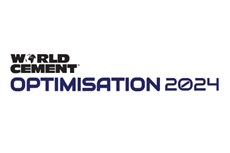AUMUND increases its focus on conveying solutions for alternative fuels
Published by Emily Thomas,
Deputy Editor
World Cement,
The cement, steel and power industries are all energy-intensive, and still predominantly use fossil fuels in their processes, releasing carbon dioxide which is damaging to the environment. At the same time, these industries have to comply with increasingly stringent domestic and international legal requirements in order to reduce their CO2 emissions. Alternative fuels play a significant role in achieving these targets. The AUMUND Group is therefore convinced of the industry potential of alternative fuels.
At EU-level for example, the ‘European Green Deal’ is regarded as the path to a sustainable EU economy. The overriding aim of the concept is that net greenhouse gas emissions are reduced to zero by 2050, and therefore the EU becomes carbon neutral. One of the most important initiatives of the Green Deal is the climate protection law that was introduced in March 2020. It requires EU emissions of CO2 to be reduced by 50 to 55% by 2030 compared to1990. On this journey, the use of all kinds of refuse as alternative fuels in energy-intensive industrial processes will become more and more important.
Alternative fuels can be divided into two groups. The first is biomass, which comprises, among other things wood chips, wood pellets, sunflower seeds, coconut shells, soiled straw or hay and sewage sludge. Biomass is carbon neutral because when burnt, it is only re-releasing the CO2 that it had taken out of the atmosphere whilst growing or being produced.
The second large group is comprised of materials such as plastics, tyres, medical refuse, and waste from textile manufacturing, shredded paper or bone meal. In many countries it is no longer permitted to dump plastics, but as the possibilities for recycling are limited, plastic is an appropriate alternative fuel. A particularly suitable application is in the cement industry, where high-temperature processes break up the long chain hydrocarbons which are normally released by burning and can cause health hazards.
The AUMUND Group offers a wide range of products for handling and conveying alternative fuels all over the world. Many of these are newly developed specialised AUMUND solutions such as the Trailer Docking Station type TES, the Moving Floor type SBA, the Rotating Screw Discharger type RAS, and a modified version of the Drag Chain Conveyor type TKF for alternative fuels. Also suitable are the well-known AUMUND Bucket Elevators, the mobile Samson® Material Feeder and SCHADE Reclaimers.
Target markets for the AUMUND solutions are in the first instance various branches of industry in Germany and Western Europe, where there is still a lot of potential, but even more so in Eastern Europe, the USA and Asia, where alternative fuels are only just starting to come into use. Also, many emerging countries are facing considerable challenges with regard to refuse disposal. Enormous amounts of climate-damaging emissions, which could be significantly reduced by utilisation in a thermal process, are released from dumps or incineration plants.
Read the article online at: https://www.worldcement.com/europe-cis/24062020/aumund-increases-its-focus-on-conveying-solutions-for-alternative-fuels/
You might also like
Rohrdorfer starts ethylene production from carbon dioxide
Following a test phase, production is to be scaled up to an industrial scale, thereby establishing a seamless CO2 circular economy.


